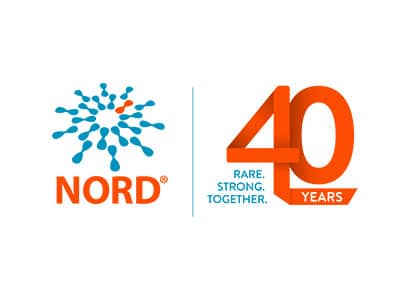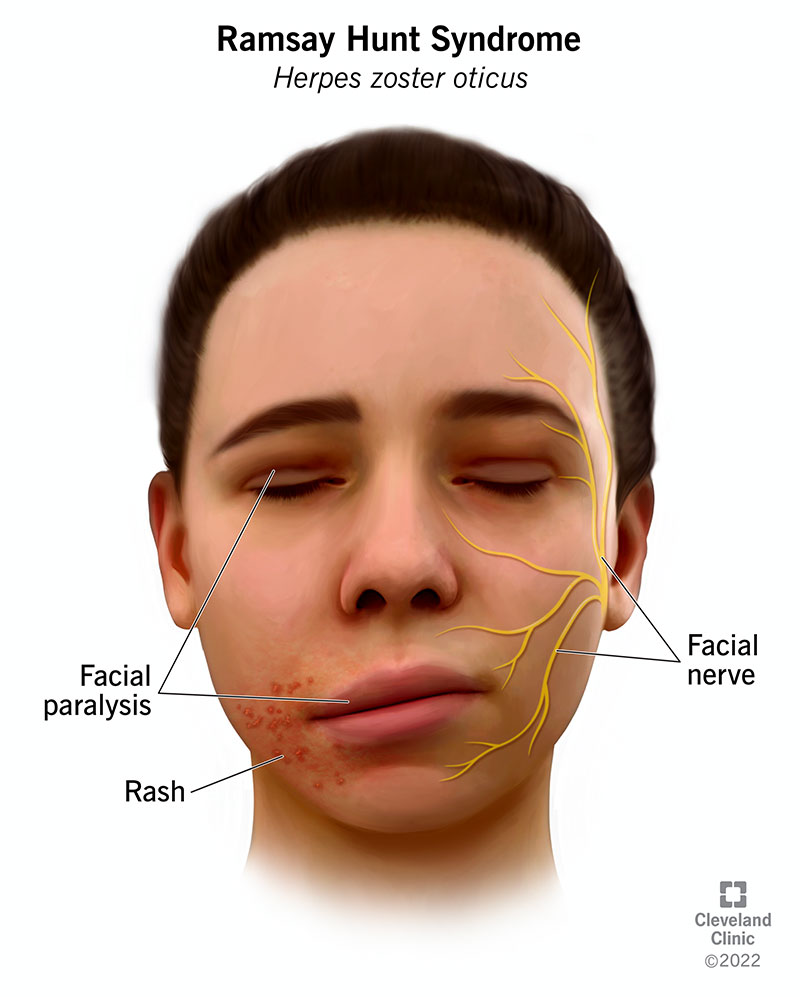Topic Ramsay hunt syndrome what is it: Ramsay Hunt syndrome, also known as herpes zoster oticus, is a condition that affects the facial nerve near one\'s ear. Although it can be painful, it is important to understand that there is variability in clinical symptoms. This syndrome is characterized by facial paralysis, otalgia (ear pain), and a rash. By raising awareness and providing accurate information, we hope to promote a better understanding of Ramsay Hunt syndrome and support those affected by it.
Table of Content
- What are the symptoms and causes of Ramsay Hunt syndrome?
- What is Ramsay Hunt syndrome and how does it affect the body?
- What are the symptoms of Ramsay Hunt syndrome?
- YOUTUBE: Understanding Ramsay Hunt Syndrome
- How is Ramsay Hunt syndrome diagnosed?
- What causes Ramsay Hunt syndrome?
- Is Ramsay Hunt syndrome contagious?
- Can Ramsay Hunt syndrome be prevented?
- What are the treatment options for Ramsay Hunt syndrome?
- Are there any long-term complications associated with Ramsay Hunt syndrome?
- Is there a cure for Ramsay Hunt syndrome or are there any medications that can help manage the symptoms?
What are the symptoms and causes of Ramsay Hunt syndrome?
Ramsay Hunt syndrome, also known as herpes zoster oticus, is a condition that occurs when the varicella-zoster virus, the same virus that causes chickenpox, reactivates in the facial nerve near one of the ears. This reactivation can happen when someone has previously had chickenpox, and the virus remains dormant in their body.
The most common symptoms of Ramsay Hunt syndrome include:
1. Ipsilateral facial paralysis: This means that the paralysis affects only one side of the face. It can cause weakness or inability to move the muscles on that side of the face, resulting in a drooping appearance.
2. Otalgia: This is a medical term for ear pain. People with Ramsay Hunt syndrome often experience severe pain in or around one of their ears.
3. Vesicular rash: A rash made up of fluid-filled blisters may develop on the ear, on the face, or in the mouth. The rash typically appears on the same side as the facial paralysis.
Other possible symptoms can include hearing loss, dizziness or vertigo, loss of taste, and dryness or excessive tearing in the affected eye.
The exact cause of the reactivation of the varicella-zoster virus is not fully understood, but it is believed that factors such as a weakened immune system, stress, or trauma to the nerve can trigger the virus to become active.
Ramsay Hunt syndrome is diagnosed based on clinical symptoms and a physical examination by a healthcare professional. If diagnosed early, antiviral medications can be prescribed to help reduce the severity and duration of symptoms. Pain medication may also be recommended to manage the discomfort.
In some cases, complications may arise, such as permanent facial weakness or other long-term neurological issues. Therefore, it is important to seek medical attention promptly if you suspect you may be experiencing symptoms of Ramsay Hunt syndrome.

READ MORE:
What is Ramsay Hunt syndrome and how does it affect the body?
Ramsay Hunt syndrome, also known as herpes zoster oticus, is a condition that occurs when the varicella-zoster virus, which is the same virus that causes chickenpox, reactivates in the nerve cells near one of the ears. This reactivation leads to a painful rash and several other symptoms that affect the body.
Here is a step-by-step explanation of how Ramsay Hunt syndrome affects the body:
1. Reactivation of the virus: The varicella-zoster virus remains dormant in the nerve cells after a person recovers from chickenpox. However, in some cases, the virus can reactivate later in life, typically due to a weakened immune system or other factors.
2. Infection of the facial nerve: Once reactivated, the varicella-zoster virus travels along the nerve fibers and infects the facial nerve, which is responsible for controlling the muscles of the face. This neural involvement results in specific symptoms associated with Ramsay Hunt syndrome.
3. Facial paralysis: One of the hallmark symptoms of Ramsay Hunt syndrome is facial paralysis on the same side as the affected ear. The facial muscles become weak or paralyzed, causing drooping of the mouth, difficulty closing the eye, and an asymmetrical facial expression.
4. Painful rash: Ramsay Hunt syndrome also causes a rash to develop around the ear, on the face, or even in the mouth. This rash consists of small, fluid-filled blisters that are often accompanied by a burning or tingling sensation. The vesicles can be extremely painful and usually follow the distribution of the affected nerve.
5. Other symptoms: In addition to facial paralysis and the rash, individuals with Ramsay Hunt syndrome may experience other symptoms. These can include hearing loss or tinnitus (ringing in the ears), difficulty in taste sensation on the affected side of the tongue, dizziness or problems with balance, and increased sensitivity to sound (hyperacusis).
It\'s important to note that Ramsay Hunt syndrome is a rare condition, and its severity can vary from person to person. If you suspect you or someone you know may have Ramsay Hunt syndrome, it is crucial to seek medical attention promptly. Early diagnosis and treatment, typically involving antiviral medications, can help manage the symptoms and prevent complications.
What are the symptoms of Ramsay Hunt syndrome?
Ramsay Hunt syndrome, also known as herpes zoster oticus, is a condition that occurs when the chickenpox virus (varicella-zoster virus) reactivates in the nerves near one\'s ear. It is characterized by a range of symptoms, which may include:
1. Facial Paralysis: One of the most prominent symptoms of Ramsay Hunt syndrome is the sudden weakness or paralysis of the muscles on one side of the face. This can result in drooping of the mouth, difficulty closing the eye on the affected side, and a lack of facial expression.
2. Ear Pain: Patients with Ramsay Hunt syndrome often experience severe pain in or around the ear on the same side as the facial paralysis. This pain may be sharp, shooting, or constant and can worsen with chewing or movement of the face.
3. Rash: A characteristic rash may develop on the affected side of the face or in the ear canal. This rash is usually accompanied by small, fluid-filled blisters that can be quite painful. The appearance of the rash usually occurs within a few days after the onset of facial paralysis and ear pain.
4. Hearing Loss: Some individuals may experience a decrease in hearing or a distortion of sound on the affected side. This hearing loss can range from mild to severe and may be permanent if not treated promptly.
5. Tinnitus: Ramsay Hunt syndrome may also cause the perception of ringing or buzzing noises in the ear on the affected side.
It is important to note that not everyone with Ramsay Hunt syndrome will experience all of these symptoms, and the severity can vary from person to person. If you or someone you know is displaying these symptoms, it is crucial to seek medical attention promptly for diagnosis and appropriate treatment.

Understanding Ramsay Hunt Syndrome
Discover the fascinating world of syndromes and unlock the mysteries behind these unique conditions. Join us on an enlightening journey as we delve into the remarkable stories of individuals with rare syndromes and the incredible resilience they possess. Don\'t miss out on this captivating video that will leave you inspired and amazed!
Explaining Ramsay Hunt Syndrome and Facial Nerve Paralysis
Are you curious about facial nerve paralysis and its impact on people\'s lives? Learn about the causes, symptoms, and treatments of this condition in our informative video. Hear empowering stories of individuals who have overcome facial nerve paralysis and witness the transformative power of resilience. Tune in now to gain a deeper understanding of this complex yet captivating topic.
How is Ramsay Hunt syndrome diagnosed?
Ramsay Hunt syndrome is diagnosed through a combination of clinical examination, medical history, and laboratory tests. Here is a step-by-step breakdown of the diagnosis process:
1. Medical History: The first step in diagnosing Ramsay Hunt syndrome involves discussing the patient\'s medical history with a healthcare professional. They will ask about symptoms, recent illnesses, and any exposure to the varicella-zoster virus (which causes chickenpox and shingles).
2. Physical Examination: A healthcare professional will perform a comprehensive physical examination, focusing on the affected area. They will look for specific signs, such as a vesicular rash on the ear, face, or mouth, as well as facial paralysis and ear pain. The examination may also include testing for hearing loss or other sensory abnormalities.
3. Clinical Criteria: Ramsay Hunt syndrome is diagnosed based on a set of clinical criteria. The classic triad of symptoms includes unilateral facial paralysis, a rash in the ear or mouth, and ear pain. However, it\'s important to note that not all patients will present with all three symptoms, as there can be significant variability in the manifestations of the condition.
4. Laboratory Tests: Laboratory tests can help confirm the diagnosis of Ramsay Hunt syndrome. The most common test is viral culture, in which a swab is taken from the rash or ear canal to detect the presence of the varicella-zoster virus. Other tests, such as polymerase chain reaction (PCR) or serological tests, may also be performed to identify the virus or detect antibodies in the blood.
5. Differential Diagnosis: The healthcare professional may also consider other possible causes of similar symptoms, such as Bell\'s palsy or other viral infections. They will evaluate the patient\'s overall clinical picture and may order additional tests or consultations with specialists if necessary to rule out other conditions.
It is important to consult a healthcare professional if you suspect you or someone you know may have Ramsay Hunt syndrome. They will be able to provide an accurate diagnosis and develop a suitable treatment plan based on the individual\'s specific condition.
What causes Ramsay Hunt syndrome?
Ramsay Hunt syndrome, also known as herpes zoster oticus, is caused by the varicella-zoster virus (VZV). This is the same virus that causes chickenpox and shingles. When a person has chickenpox, the virus remains dormant in certain nerves in the body, including the facial nerve.
When the virus reactivates later in life, it can lead to the development of shingles. In the case of Ramsay Hunt syndrome, the reactivated virus specifically affects the facial nerve near one of the ears. The exact reason why the virus reactivates is not fully understood, but it is believed to be linked to a weakened immune system, stress, or other factors.
The reactivation of the virus causes inflammation and damage to the facial nerve, leading to the symptoms associated with Ramsay Hunt syndrome. These symptoms can include severe pain around the ear, a rash around the ear, on the face, or inside the mouth, and facial weakness or paralysis on the affected side. Other symptoms may include difficulty in closing the eye, changes in taste sensation, and some hearing loss.
It\'s important to note that Ramsay Hunt syndrome is not contagious. However, the varicella-zoster virus can be transmitted to others who have not had chickenpox or been vaccinated against it if they come into direct contact with the rash or fluid from the blisters.
If you suspect you or someone you know may have Ramsay Hunt syndrome, it is important to consult a healthcare professional for a proper diagnosis and appropriate treatment.

_HOOK_
Is Ramsay Hunt syndrome contagious?
Ramsay Hunt syndrome is not directly contagious from person to person. It is caused by the varicella-zoster virus, the same virus that causes chickenpox and shingles. However, unlike chickenpox or shingles which can be spread through direct contact with the rash or fluid-filled blisters, Ramsay Hunt syndrome itself cannot be transmitted to others.
Ramsay Hunt syndrome occurs when the varicella-zoster virus reactivates in the sensory nerve ganglion of the facial nerve. It usually only affects one side of the face, causing symptoms such as facial paralysis, ear pain, and a rash around the ear, face, or mouth.
It is worth noting that if someone with Ramsay Hunt syndrome has active shingles blisters, those blisters can potentially infect others who have not had chickenpox or been vaccinated against it. So, while the syndrome itself is not contagious, caution should be taken to avoid direct contact with shingles blisters if present.
If you suspect you have Ramsay Hunt syndrome or have been in close contact with someone who has it, it is advisable to consult a healthcare professional for an accurate diagnosis and appropriate treatment.
Can Ramsay Hunt syndrome be prevented?
Ramsay Hunt syndrome, also known as herpes zoster oticus, is a condition that occurs when the shingles virus affects the facial nerve near one of your ears. It is characterized by symptoms such as facial paralysis, pain in the ear, and a rash around the ear, face, or mouth.
While there is no guaranteed way to completely prevent Ramsay Hunt syndrome, there are steps you can take to reduce your risk and minimize its impact:
1. Get vaccinated: One of the most effective ways to prevent shingles, and by extension Ramsay Hunt syndrome, is by getting the shingles vaccine. The vaccine, called Zostavax, is recommended for individuals aged 50 and older and can significantly lower the risk of developing shingles and its complications.
2. Boost your immune system: Maintaining a healthy immune system can reduce your risk of developing shingles. This can be achieved through a balanced diet, regular exercise, adequate sleep, stress management, and avoiding habits such as smoking and excessive alcohol consumption.
3. Practice good hygiene: Shingles and Ramsay Hunt syndrome are caused by the same virus that causes chickenpox. To reduce your risk of infection, maintain good personal hygiene practices, such as washing your hands frequently and avoiding close contact with individuals who have active shingles or chickenpox.
4. Promptly treat shingles: If you develop shingles, it is crucial to seek medical attention promptly. Early treatment with antiviral medications can help shorten the duration of the illness, reduce the severity of symptoms, and potentially lower the risk of complications such as Ramsay Hunt syndrome.
5. Protect others: If you have shingles, it is important to avoid close contact with individuals who have never had chickenpox or are immunocompromised. Covering the rash and blisters with a clean bandage can help prevent the virus from spreading to others.
It is important to note that while these measures can help reduce the risk of Ramsay Hunt syndrome, they do not guarantee complete prevention. If you suspect you may have symptoms of Ramsay Hunt syndrome or shingles, it is recommended to consult a healthcare professional for an accurate diagnosis and appropriate treatment.

What are the treatment options for Ramsay Hunt syndrome?
The treatment options for Ramsay Hunt syndrome depend on the severity of the symptoms and should be decided in consultation with a healthcare professional. Here are some potential treatment approaches:
1. Antiviral medications: Since Ramsay Hunt syndrome is caused by the varicella-zoster virus (the same virus that causes chickenpox and shingles), antiviral medications such as acyclovir, valacyclovir, or famciclovir may be prescribed. These medications can help reduce virus replication and decrease the duration and severity of the symptoms.
2. Analgesics: Over-the-counter pain relievers like acetaminophen (Tylenol) or nonsteroidal anti-inflammatory drugs (NSAIDs) such as ibuprofen (Advil, Motrin) may help manage the pain associated with Ramsay Hunt syndrome.
3. Corticosteroids: Oral corticosteroids, such as prednisone, may be prescribed to reduce inflammation and swelling of the facial nerve. They can help improve facial weakness and pain.
4. Eye care: If the eye is affected by facial paralysis, lubricating eye drops or ointments can be used to prevent dryness and protect the cornea from damage. In some cases, an eye patch may be recommended to protect the eye from excessive tearing and foreign particles.
5. Physical therapy: Facial exercises or physical therapy may be recommended to help improve muscle strength, coordination, and facial movements affected by the paralysis. This can also help prevent long-term complications like facial muscle contractures.
6. Pain management techniques: In some cases, additional treatments like nerve blocks, acupuncture, or transcutaneous electrical nerve stimulation (TENS) may be used to alleviate pain.
It\'s important to note that individual cases of Ramsay Hunt syndrome may vary, and treatment plans should be tailored to the specific needs of the patient. It is crucial to consult with a healthcare professional for an accurate diagnosis and appropriate management of the condition.
An Overview of Ramsay Hunt Syndrome
Get ready for an insightful overview that will broaden your horizons! In this comprehensive video, we provide a thorough overview of a range of captivating subjects. From the fascinating world of art and culture to the wonders of scientific discoveries, this video is your gateway to a wealth of knowledge. Join us on this enriching journey and expand your understanding of various captivating topics.
Are there any long-term complications associated with Ramsay Hunt syndrome?
According to the Google search results and my knowledge, Ramsay Hunt syndrome can have long-term complications. It is a condition that occurs when the varicella-zoster virus, the same virus that causes chickenpox and shingles, infects a nerve in the head. The syndrome is characterized by a painful rash around the ear, on the face, or on the mouth, accompanied by ipsilateral facial paralysis and otalgia (ear pain).
Some potential long-term complications associated with Ramsay Hunt syndrome include:
1. Facial weakness or paralysis: This is a common consequence of the syndrome and may result in the inability to control facial muscles on the affected side of the face. The severity of facial weakness or paralysis can vary, and in some cases, it may be permanent.
2. Hearing loss or tinnitus: Ramsay Hunt syndrome can affect the inner ear and lead to hearing loss in the affected ear. This can range from mild to severe. Additionally, some individuals may experience tinnitus, which is a persistent ringing or buzzing sound in the ear.
3. Balance problems: The infection of the vestibular nerve, responsible for maintaining balance, can cause issues with balance and coordination. This may result in dizziness or difficulty walking and may persist even after the acute phase of the syndrome has resolved.
4. Postherpetic neuralgia: This is a condition characterized by chronic, severe pain in the area affected by the rash. Even after the rash and other symptoms of Ramsay Hunt syndrome have healed, some individuals may continue to experience persistent pain in the affected region.
It is important to note that not all individuals with Ramsay Hunt syndrome will experience these long-term complications. The severity and duration of the complications can vary from person to person. Prompt treatment, including antiviral medications, steroids, and supportive care, can help minimize the risk of long-term complications and improve the overall outcome. It is advisable to consult with a healthcare professional for an accurate diagnosis and appropriate management of Ramsay Hunt syndrome.

READ MORE:
Is there a cure for Ramsay Hunt syndrome or are there any medications that can help manage the symptoms?
Ramsay Hunt syndrome, also known as herpes zoster oticus, is a condition that occurs when the shingles virus affects the facial nerve near one of the ears. It is characterized by a painful rash around the ear, on the face, or on the mouth. The classic triad of symptoms includes ipsilateral facial paralysis, otalgia (ear pain), and a vesicular rash, but the presentation can vary.
While there is no cure for Ramsay Hunt syndrome, prompt medical treatment can help manage the symptoms and reduce complications. The primary goal of the treatment is to control the viral infection and alleviate pain. Here are some common steps that may be taken:
1. Antiviral Medications: Doctors often prescribe antiviral drugs, such as acyclovir, valacyclovir, or famciclovir, to help fight the virus and reduce the severity and duration of the symptoms. These medications work best if started within the first 72 hours of symptom onset.
2. Pain Management: Pain relief is an important aspect of managing Ramsay Hunt syndrome. Over-the-counter pain relievers like acetaminophen or nonsteroidal anti-inflammatory drugs (NSAIDs) may be recommended. In severe cases, prescription pain medications or nerve pain medications like gabapentin may be prescribed.
3. Corticosteroids: Corticosteroids, such as prednisone, can help reduce inflammation and swelling in the affected nerves, potentially improving facial nerve function and decreasing pain. These are often prescribed in conjunction with antiviral medications.
4. Eye Protection: Facial paralysis associated with Ramsay Hunt syndrome can lead to difficulty in closing the affected eye properly. An eye patch or eye drops may be prescribed to protect the eye and prevent dryness or corneal damage.
5. Physical Therapy: Facial exercises and physical therapy may be recommended to help maintain muscle tone and prevent long-term facial weakness or contractures.
It is crucial to consult a healthcare professional for an accurate diagnosis and appropriate treatment plan tailored to individual needs. Early intervention and treatment can improve outcomes and reduce the risk of complications.
_HOOK_














